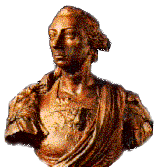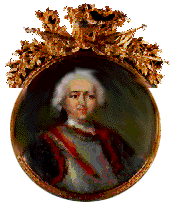
 Quebec Separation
Quebec Separation
 Background/Cause
Background/Cause
| General Wolfe | General Montcalm |
|---|
 |
 |
The idea of having Quebec as an independent nation did not just pop up out of the midst of nowhere. It is the result of many years of secret grudge and conflict.The moment General Wolfe defeated General Montcalm on the Plains of Abraham,France left Canada, and New France became a colony under the English rule. After the hand over of Montreal, the French people were ruled
by their enemies and people who had different background and culture -- the English people spoke English and were mainly Protestant; the French spoke French and were mainly Catholic. The French were unhappy under the English rule, for they didn't feel that they belong to Britian. The Proclamation Act of 1763 encouraged this secret grudge against the English because the Act
tried to take away their language as well as their culture. This Act did not last long though, for the English knew better than to agonize the French people -- Quebec Act was introduced in 1774, which granted the
| Quebec Act |
|---|
 |
French people the right of preserving their language and culture. Some people were happy about the decision, but some weren't. And, these un-satisfied people carried their secret
grudge from fathers to sons. Since the Quiet Revolution of the 1960's, Quebec has turned to its provincial government for direction and leadership more and more. As the economy expanded and population urbanized through these years, support for an independent Quebec also grew, and some Quebecois believe that Quebec should now separate from the rest of Canada because they believe that their culture is being forgotten, and that the only way to save their distinct society is to separate. This will of the people, mainly Francophones, lead to the first Quebec separatist government on November 15, 1976. Ever since that date, the Quebec separatists have never backed off from that idea they held referendums to give the people a voice. The Referendum Act was adopted in 1978. This act provides the referendum to be held either on a question or a draft bill, which must be adopted by the National Assembly, but cannot become an effective law until it is approved by a majority of votes in the referendum. From the last referendum, the majority of no votes were only 50.48%. Almost half of the people now in Quebec agree to separate it has become a more dangerous issue than it has seemed to be ever since the conquer of Quebec by General Wolfe.
 click here to go to the next page
click here to go to the next page
This page hosted by  Get your own Free Home Page
Get your own Free Home Page

 Quebec Separation
Quebec Separation
 Quebec Separation
Quebec Separation Background/Cause
Background/Cause


 click here to go to the next page
click here to go to the next page